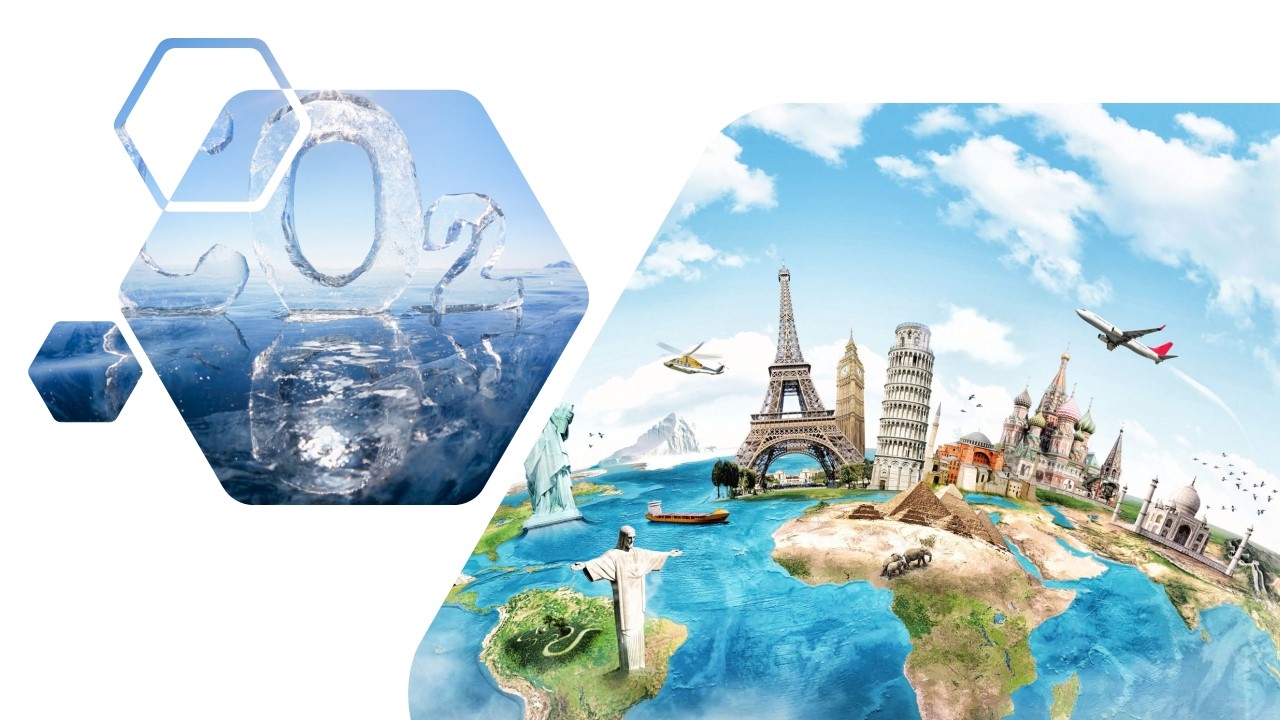
Dr. Le Thai Ha*, Director of Research at Fulbright School of Public Policy and Management, and Dr. Nguyen Phuc Canh, Lecturer of University of Economics Ho Chi Minh City recently introduced a research titled “The impact of tourism on carbon dioxide emissions: insights from 95 countries”. Based on data collected from 95 countries, this study provides international evidence on the impacts of tourism on carbon dioxide emissions in countries of arrival. While there has been a number of discussions about the impacts of tourism on economic development, there is a lack of insightful studies on the impacts of tourism on global CO2 emissions. This study investigates the environmental sustainability of tourism, one of the largest and fastest-growing industries in the world. Despite being a significant contributor to national and local economies across the globe, the rapid growth of tourism has impacted greenhouse gas emissions worldwide.
The research was published on Applied Economics, a peer-reviewed academic journal by Routledge with a focus on the application of economic analyses, in August 2020. The authors employ a large panel of 95 countries, consisting of three subsamples of countries classified by income level over the period 1998–2014, with data collected from the World Bank’s World Development Indicators.
The empirical results show tourism reduces total CO2 emissions and CO2 emission from electricity and heat production in the countries of arrival but increases CO2 emissions from transport. At the same time, the number of tourist arrivals increases CO2 emissions per capita. The study also reveals the effects of tourism on emissions vary across different income levels. At the global level, tourism appears to increase CO2 emissions from transportation, suggesting that special attention should be paid to supporting green transportation infrastructure technologies and practices in the tourism industry. Overall, there is room for improvement in tourism management in countries of all income levels to promote the development of low-carbon tourism products and services.
Three key findings
Industrialization is generally regarded as a major driver of global warming and hence climate change, primarily due to higher energy consumption and intensity, which generate a large amount of carbon emissions. According to a study by Bernardini and Galli (1993), in the pre-industrialization stage, the economy is generally dominated by agriculture and its related activities (which have less energy intensity).
After that, the industrialization process heightens CO2 emissions through the rapid growth of energy demand and consumption. When a country reaches a certain level of industrialization, the economy would transform towards a service-oriented economy, which is called the post-industrialized period. Tourism, as a critical service sector, would then be expected to replace the manufacturing and agricultural sectors, leading to decreases in energy consumption, energy intensity, and hence carbon emissions.
Some studies explained that structural changes that occur during the economic transformation from pre-industrialization, industrialization to post-industrialization bring about environmentally friendly solutions. However, since technological progress is genuinely related to economic development, which varies across countries, the development of tourism would have different effects on the level of emissions across the globe. This matter necessitates the investigation of the effects of tourism on emissions at a global sample.
This study is probably the first of its kind to examine the tourism-emissions nexus for a global sample. The authors attempted to conduct a thorough analysis with the use of different proxies for tourism development and CO2 emissions. For comparison purposes, besides the whole sample, they also analyze three subsamples of countries that are classified based on the World Bank’s income classification as of September 2018.
The principal findings of this study are as follows:
First, tourism (in terms of US dollar receipts and the number of arrivals) appears to have significant positive effects on the environment in the countries of arrival by reducing total CO2 emissions and CO2 emission from electricity and heat production at arriving countries.
Second, tourism increases CO2 emissions from transportation, implying the negative effects of tourism on the environment through transportation channels.
Third, the number of international tourist arrivals is shown to generate higher CO2 emissions per capita in the countries of arrival. Interestingly, the effects of tourism on emissions vary across countries with different income levels. The findings of this study suggest policy actions towards environmentally friendly tourism, especially in upper-middle-income economies.
Environmental implications
The empirical analysis of this study generates several implications for environmental management in countries with the fast-growing tourism industry.
First, the findings reveal that economic development, industrialization, and energy consumption are the main factors explaining total CO2 emissions, CO2 emissions per capita, and CO2 emissions from electricity and heat production. Thus, a plan for sustainable development concerning environmental quality should consider these factors by, for instance, improving energy efficiency or using more environment-friendly technologies.
Second, tourism is found to increase CO2 emissions from transportation, implying that special attention should be paid to supporting low-carbon transportation activities in the tourism industry to improve emission reduction capacity.
Furthermore, at the global level, tourism seems to reduce total CO2 emissions and CO2 emissions from electricity and heat production in arriving countries. This implies that governments should support incentives for the development of the tourism industry for the sake of the climate. Nevertheless, tourism positively impacts CO2 emissions from transportation. Hence, the government should adopt well-defined transport rules to reduce the environmental damages caused by tourism. For all groups of countries at different income levels, tourism activities appear to lead to a higher level of CO2 emissions per capita. As such, there is room for improvement in tourism management in countries of all income levels to promote the development of green tourism products and services, the study concludes.
Thuy Hang
* Director of Research and a Senior Faculty member of Fulbright School of Public Policy and Management. She has more than 40 scientific research papers published in prestigious international academic journals, including many leading journals in the fields of applied economics, energy economics, and environment.







